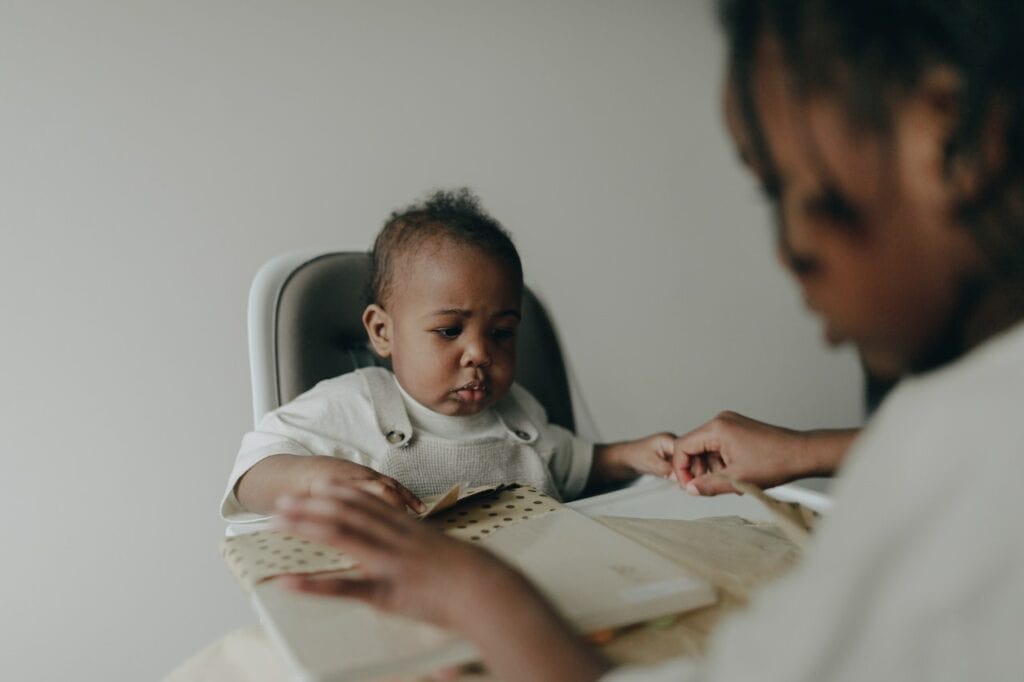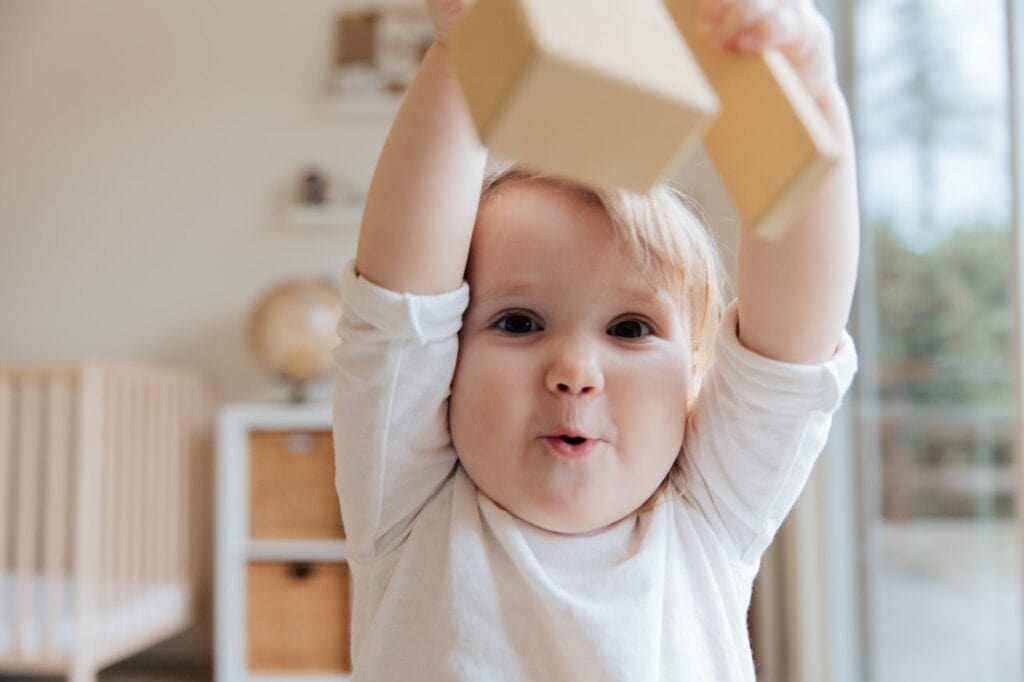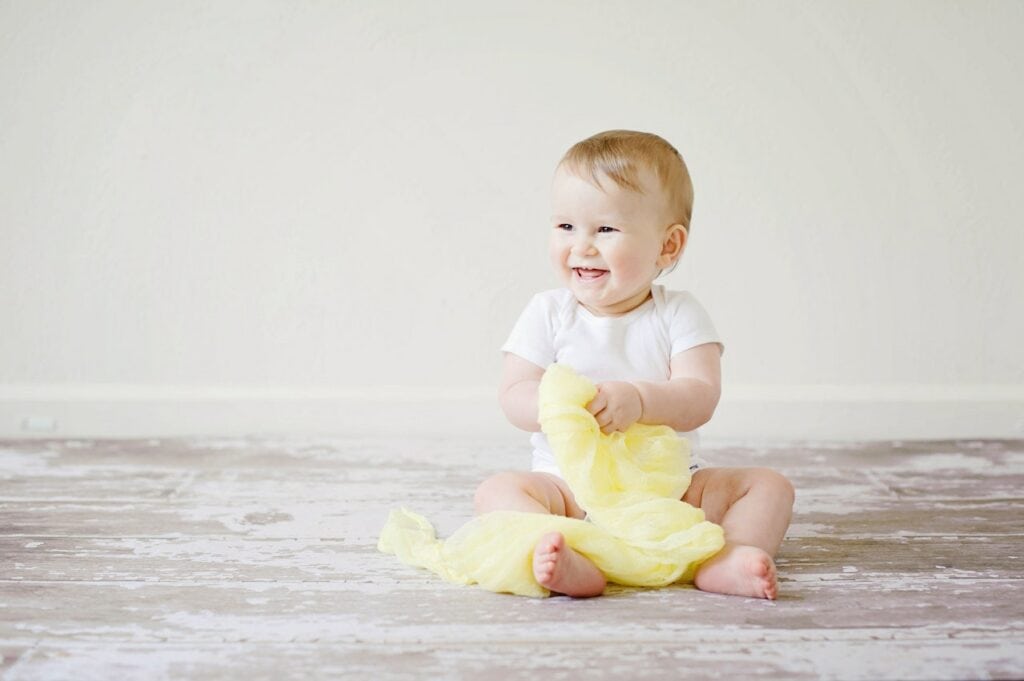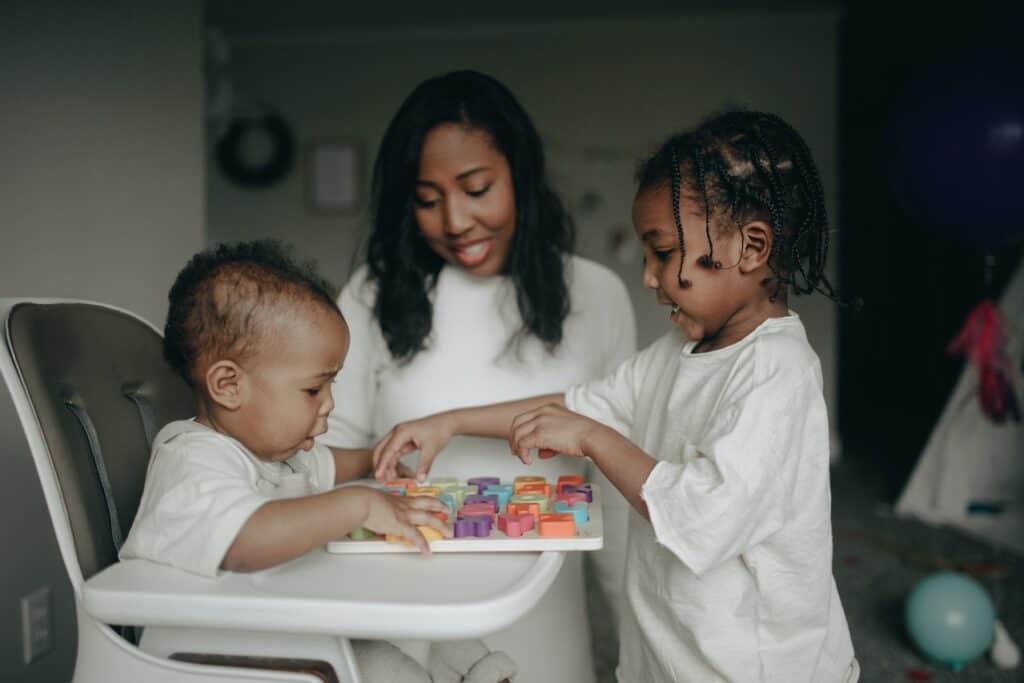To discipline 1 year old child can be a challenging task for many parents. One-year-olds are at a stage where they are exploring their surroundings and testing boundaries. They are also developing their communication skills, which can lead to frustration and tantrums. It’s important for parents to understand their child’s behavior and implement effective discipline techniques to establish clear boundaries and encourage positive behavior.
Understanding Your 1-Year-Old Child At one year old, children are developing rapidly and are beginning to assert their independence. They are curious and want to explore their surroundings, which can lead to accidents and misbehavior. They are also developing their communication skills, which can lead to frustration and tantrums when they are unable to express themselves. Understanding your child’s behavior and needs is crucial in implementing effective discipline techniques.
Importance of Discipline Discipline is an essential part of parenting. It helps children learn right from wrong, develop self-control, and establish boundaries. Discipline should be age-appropriate and consistent, and parents should focus on positive reinforcement and encouragement rather than punishment. Effective discipline techniques can help children develop self-esteem, self-discipline, and respect for others.
Key Takeaways
- Understanding your child’s behavior and needs is crucial in implementing effective discipline techniques.
- Discipline is an essential part of parenting that helps children learn right from wrong, develop self-control, and establish boundaries.
- Effective discipline techniques focus on positive reinforcement and encouragement rather than punishment.
Understanding Your 1-Year-Old Child
At the age of one, a child is starting to develop their own personality and is becoming more independent. They are also learning to communicate and express themselves in different ways. Understanding your 1-year-old child is crucial for effective discipline.

At this age, a child’s brain development is still in progress. They are starting to develop cognitive skills such as memory, problem-solving, and language. They are also developing their physical abilities such as walking, running, and climbing.
It is important to remember that a 1-year-old child is still a child and needs guidance and support from their parents or caregivers. They are not capable of understanding complex concepts and reasoning, so discipline should be simple and consistent.
When disciplining a 1-year-old child, it is important to keep in mind their developmental stage. They may not understand why they are being disciplined, but it is important to set boundaries and teach them what is acceptable behavior.
It is also important to be patient and understanding when disciplining a 1-year-old child. They are still learning and exploring the world around them, and discipline should be used as a tool to guide them in the right direction.
Overall, understanding your 1-year-old child is crucial for effective discipline. By keeping in mind their developmental stage and using simple and consistent discipline, parents and caregivers can help their child grow and develop into a well-behaved and confident individual.
Importance of Discipline
Discipline is an essential aspect of parenting, especially when it comes to raising a one-year-old child. It involves teaching children about boundaries, rules, and consequences. Discipline helps children develop self-control, responsibility, and positive behavior. In this section, we will discuss the importance of discipline and how it can benefit both parents and children.
Discipline teaches children to be responsible for their actions. When parents set boundaries and rules, they are teaching their children to be accountable for their behavior. Children learn that their actions have consequences, whether positive or negative. This understanding helps them to develop self-control and make better decisions in the future.
Positive discipline is also important for building a healthy relationship between parents and children. When parents use positive discipline techniques, such as praising good behavior and redirecting negative behavior, they create a positive and supportive environment. This environment helps children feel loved and secure, which is essential for their emotional and social development.
Discipline also helps children develop important life skills, such as problem-solving and conflict resolution. When parents teach their children how to resolve conflicts in a positive and respectful way, they are helping them develop these critical skills. These skills will be useful throughout their lives, both in personal and professional relationships.
In conclusion, discipline is an essential aspect of parenting a one-year-old child. It helps children develop self-control, responsibility, and positive behavior. Positive discipline techniques create a supportive environment that fosters emotional and social development. By teaching children important life skills, such as problem-solving and conflict resolution, parents are setting their children up for success in the future.
Establishing Clear Boundaries
Establishing clear boundaries is essential when it comes to disciplining a one-year-old child. Boundaries help children understand what is acceptable behavior and what is not. Setting limits and clear expectations will help create a safe and secure environment for your child.

One way to establish clear boundaries is by creating family rules. Family rules should be simple, clear, and easy to understand. For example, “No hitting” or “No throwing toys.” It is important to consistently enforce these rules to help your child understand the consequences of their actions.
Another way to establish clear boundaries is by redirecting your child’s behavior. For example, if your child is throwing toys, redirect them to a different activity. This will help them understand that throwing toys is not acceptable behavior, but there are other appropriate ways to play.
It is also important to communicate your expectations with your child. For example, if you are going to the grocery store, let your child know what is expected of them. You can say something like, “We are going to the grocery store, and I expect you to stay in the cart.” This will help your child understand what is expected of them and what behavior is acceptable.
In conclusion, establishing clear boundaries is essential when it comes to disciplining a one-year-old child. Setting limits, clear expectations, and family rules will help create a safe and secure environment for your child. Redirecting your child’s behavior and communicating your expectations will also help your child understand what is acceptable behavior.
Effective Discipline Techniques
Disciplining a one-year-old child can be challenging, but it is essential for their growth and development. Effective discipline techniques can help parents and caregivers teach children appropriate behavior and boundaries.

Positive discipline techniques are the most effective way to discipline a child. This technique focuses on positive reinforcement rather than punishment. Praising and rewarding good behavior can encourage a child to repeat that behavior in the future.
Time-outs can be an effective discipline technique for children who are old enough to understand the concept. Time-outs should be short and consistent, and the child should be given a clear explanation of why they are being placed in time-out.
Distraction and redirecting are other effective techniques for disciplining a one-year-old child. When a child is engaging in inappropriate behavior, distracting them with a toy or activity can redirect their attention and prevent the behavior from continuing.
Creating a routine and using charts can also be helpful in disciplining a one-year-old child. A routine can help establish boundaries and expectations, while a chart can provide visual reinforcement of positive behavior.
Overall, effective discipline techniques for a one-year-old child should focus on positive reinforcement, clear communication, and consistency. By using these techniques, parents and caregivers can help their child learn appropriate behavior and boundaries.
Dealing with Misbehavior
Dealing with misbehavior in a one-year-old child can be challenging for parents or caregivers. However, it is important to understand that misbehavior is a normal part of a child’s development. It is how they learn to communicate and explore the world around them. Here are some tips to help deal with misbehavior in a one-year-old child.

1. Be Consistent
Consistency is key when dealing with misbehavior. Parents or caregivers should establish clear rules and boundaries and consistently enforce them. This will help the child understand what is expected of them and what behaviors are not acceptable.
2. Redirect and Distract
When a one-year-old child is misbehaving, it can be helpful to redirect their attention to something else. For example, if a child is throwing toys, a parent or caregiver can redirect their attention to a different toy or activity. Distracting the child can also be effective in stopping misbehavior before it escalates.
3. Stay Calm
It is important for parents or caregivers to stay calm when dealing with misbehavior. Yelling or getting angry can escalate the situation and make it harder to resolve. Instead, parents or caregivers should speak in a calm and firm tone and avoid using physical punishment.
4. Positive Reinforcement
Positive reinforcement can also be effective in dealing with misbehavior. When a child exhibits good behavior, parents or caregivers should praise and reward them. This will help reinforce good behavior and encourage the child to continue behaving well.
5. Addressing Tantrums and Meltdowns
Tantrums and meltdowns are common in one-year-old children. When a child is having a tantrum or meltdown, it is important for parents or caregivers to remain calm and offer comfort and support. It can also be helpful to remove the child from the situation and give them time to calm down.
6. Power Struggles
One-year-old children may also engage in power struggles with parents or caregivers. It is important for parents or caregivers to remain in control of the situation and avoid engaging in power struggles with the child. Instead, parents or caregivers should set clear boundaries and consequences for misbehavior.
7. Biting
Biting is a common misbehavior in one-year-old children. When a child bites, it is important for parents or caregivers to address the behavior immediately and firmly. They should explain to the child that biting is not acceptable and offer alternative ways for the child to express themselves.
In conclusion, dealing with misbehavior in a one-year-old child can be challenging, but it is important for parents or caregivers to remain consistent, calm, and positive. By setting clear boundaries, redirecting and distracting the child, and offering positive reinforcement, parents or caregivers can effectively manage misbehavior and help their child develop appropriate behaviors.
Encouraging Positive Behavior
Encouraging positive behavior in a one-year-old child can be challenging, but it is an essential part of their development. Positive reinforcement is an effective way to encourage good behavior. Praising a child for their good behavior can help them feel proud and motivated to continue behaving well.
Rewards can also be used to encourage positive behavior. Simple rewards such as a sticker or a small toy can be effective. It is important to ensure that the reward is appropriate for the behavior and that it is given immediately after the behavior occurs.
Helpfulness and cooperation can also be encouraged in young children. Giving a child a task to complete, such as picking up toys or helping with simple chores, can help them feel useful and valued. Praising the child for their help and cooperation can encourage them to continue being helpful.
It is important to remember that discipline should be consistent and fair. Punishing a child for bad behavior can be counterproductive and can lead to negative behavior. Instead, it is important to focus on encouraging positive behavior and rewarding good behavior. With patience and consistency, parents can help their one-year-old child learn positive behavior.
Managing Your Own Frustration
When it comes to disciplining a one-year-old child, it’s important to remember that frustration is a natural part of the process. However, it’s crucial for parents to manage their own frustration in a healthy way in order to maintain a positive and effective approach to discipline.

One key aspect of managing frustration is through self-control. Parents should take a moment to pause and take a deep breath before reacting to their child’s behavior. This can help prevent impulsive reactions that may not be effective in addressing the behavior.
Another important strategy is to avoid yelling or shouting at the child. While it may be tempting to raise your voice to get their attention, this can actually escalate the situation and make it more difficult to effectively discipline the child.
Instead, parents should aim to speak in a calm and clear tone, using language that is appropriate for the child’s age and development. This can help the child understand what is expected of them and why certain behaviors are not acceptable.
Overall, managing your own frustration is an important part of disciplining a one-year-old child. By practicing self-control and avoiding yelling or shouting, parents can create a positive and effective approach to discipline that will benefit both the child and the parent.
Understanding and Responding to Feelings
Understanding and responding to a 1-year-old’s feelings is an essential part of discipline. Children at this age are starting to develop a sense of self and can experience a wide range of emotions. It is important to respond to their feelings in a way that is empathetic and supportive.
Empathy is the ability to understand and share the feelings of another person. When a 1-year-old is upset, it is important to acknowledge their feelings and let them know that you understand. This can be done by using simple words and phrases such as “I see that you’re upset” or “I understand that you’re frustrated.” By doing this, the child feels heard and validated, which can help to prevent further outbursts.
Wonder is another important aspect of responding to a 1-year-old’s feelings. Children at this age are constantly exploring and learning about the world around them. By encouraging their sense of wonder, you can help them to develop a positive outlook on life. For example, if a child is upset because they can’t reach a toy, you can redirect their attention to something else that is interesting or exciting.
It is also important to set boundaries and provide structure for a 1-year-old. This can be done by using positive reinforcement and redirection. For example, if a child is throwing a tantrum because they want a toy, you can redirect their attention to another toy or activity that is more appropriate. By doing this, you are teaching them that their behavior has consequences and that there are other ways to get what they want.
In summary, understanding and responding to a 1-year-old’s feelings is an important part of discipline. By using empathy, wonder, and positive reinforcement, you can help them to develop a sense of self and learn appropriate behavior.
Safety Measures in the Environment
When it comes to disciplining a 1-year-old child, it is important to ensure that the environment is safe and secure. This means taking measures to childproof the home and ensuring that potential hazards are removed or kept out of reach.

One of the first steps in creating a safe environment for a 1-year-old is to install safety gates at the top and bottom of stairs to prevent falls. It is also important to secure furniture and appliances to the wall to prevent tipping and to cover electrical outlets to prevent electrocution.
In addition, it is important to keep small objects and choking hazards out of reach. This includes items such as coins, buttons, and small toys. It is also important to keep cleaning supplies and other toxic substances out of reach and locked away.
When it comes to discipline, it is important to avoid physical punishment or harsh words that could harm the child emotionally. Instead, parents can use positive reinforcement and redirection to guide their child’s behavior.
By taking these safety measures in the environment, parents can create a safe and secure space for their 1-year-old child to explore and learn while also promoting positive behavior.
When to Seek Professional Help
Disciplining a one-year-old child can be challenging for parents, and in some cases, it may be necessary to seek professional help. Here are some situations where seeking help from a pediatrician or the American Academy of Pediatrics (AAP) may be necessary:

1. Developmental Delays
If a child is not meeting their developmental milestones, it may be a sign of underlying issues that need to be addressed. A pediatrician can evaluate the child’s development and refer them to specialists if necessary.
2. Behavioral Issues
If a child’s behavior is consistently challenging, such as aggression, tantrums, or defiance, it may be a sign of a behavioral disorder. The AAP recommends seeking help if a child’s behavior is causing distress or interfering with daily life.
3. Parenting Challenges
Disciplining a child can be difficult, especially for first-time parents. If a parent is struggling to manage their child’s behavior, seeking guidance from a pediatrician or parenting support group can be helpful.
4. Medical Concerns
If a child’s behavior changes suddenly or is accompanied by other symptoms, it may be a sign of an underlying medical condition. It’s important to seek medical attention if a child’s behavior is out of character or concerning.
In summary, seeking professional help is necessary when a child’s behavior is causing distress, interfering with daily life, or is accompanied by other symptoms. A pediatrician can evaluate the child’s development and refer them to specialists if necessary. The AAP also provides guidance and support for parents who are struggling with challenging behaviors.
Related Posts:
Frequently Asked Questions
How do I teach my 1 year old discipline?
Teaching discipline to a 1-year-old requires patience and consistency. Start by setting clear boundaries and rules, and communicate them in a calm and firm tone. Use positive reinforcement when your child follows the rules, such as praising them or offering a small reward. Be consistent with consequences when the rules are broken, such as a time-out or removal of a privilege. Remember to always remain calm and avoid physical punishment.
How to discipline a 15 month-old for hitting?
At this age, it’s common for children to hit as a way of exploring their environment. When your child hits, calmly tell them “no hitting” and redirect their attention to a different activity. If the behavior continues, remove them from the situation and give them a brief time-out. Consistency is key in teaching your child that hitting is not acceptable.
How to discipline a screaming 1 year-old?
Screaming is a natural way for young children to express themselves, but it can be frustrating for parents. When your child screams, try to identify the cause of the behavior and address it. If they are screaming for attention, try giving them positive attention when they are calm and quiet. If they are screaming out of frustration, offer them a different activity or distraction. If the behavior continues, give them a brief time-out.
How to discipline a 1 year old Christian?
Disciplining a 1-year-old Christian should be done with love and patience. Use positive reinforcement to encourage good behavior and teach them about God’s love. When they break a rule, calmly explain why their behavior was not acceptable and offer forgiveness. Use age-appropriate Bible stories and songs to teach them about right and wrong.
How do you discipline a 1 year old who doesn’t listen?
If your 1-year-old doesn’t listen, try to identify the reason why. Are they tired, hungry, or overstimulated? Address their needs first before attempting to discipline. Use clear and simple language when communicating rules and consequences. Be consistent with consequences, such as a brief time-out or removal of a privilege. Remember to always remain calm and avoid physical punishment.
Is it okay to discipline a 1 year old?
Yes, it is okay to discipline a 1-year-old. Discipline is an important part of teaching children right from wrong and setting boundaries. However, it’s important to use age-appropriate methods and avoid physical punishment. Discipline should always be done with love and patience, and with the goal of teaching the child how to make good choices.

Iesha is a loving mother of 2 beautiful children. She’s an active parent who enjoys indoor and outdoor adventures with her family. Her mission is to share practical and realistic parenting advice to help the parenting community becoming stronger.
